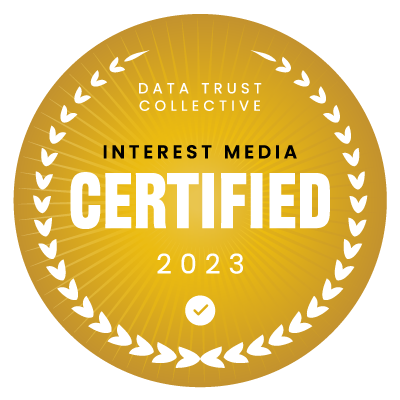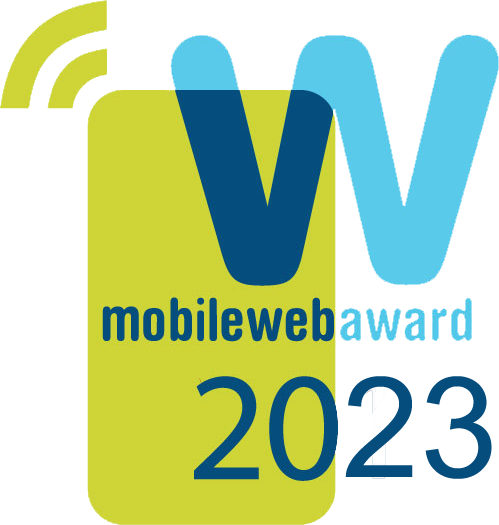
Gen Z More Likely to Allow Ad Targeting
- New research finds that younger consumers may prefer targeted advertising and they will allow tracking to receive more relevant advertising.
- Gen Z prefers personalization in every aspect of their shopping experience, and intent-based marketing can help you target them at the right time.
- Younger consumers look to social media for product research. Learn what attracts Gen Z, and how to reach them in the right way.
Gen Z Preferences are a Boon for Advertisers
“Gen Zers prefer relevant ads…they’re more than three times as likely as Boomers to allow tracking online” –Tinuiti
Advertisers have finally caught a break. As privacy requirements grow more stringent and cookies are being phased out making things tougher for online marketers, younger consumers actually want targeted and relevant advertising.
We’ll explore more of the key findings from the Tinuiti study and other research data as it relates to Gen Z.
Who is Generation Z?
Generation Z, also called Gen Z, Gen Zers, and Zoomers, are those born between 1997 and 2012, (depending on your source). Generation Z currently ranges in age from 7 to 24. There are nearly 68 million individuals in this demographic as of June 2023.

Amount of people in Gen Z
Keep in mind the different names for generations (baby boomers, X, millennials, Z, etc.), aren’t official government designations, but rather marketing designations. Therefore, the start and end years for these generations can vary according to your source. For further a deep dive into marketing to this demographic, read our extensive article on marketing to Generation Z the right way.
Gen Z is the first generation to have never lived in a world without computers (at school), making them the most tech-savvy yet. They are also multicultural and very connected to culture, community, causes, and sustainability and they carry these values into their decisions about which products and services they purchase. For the brands that meet their approval, Gen Z is very loyal.
Therefore, it more than pays companies to put forth the effort to meet Zoomers’ demands as their buying power is increasingly growing and was estimated to be around $360 billion in 2021.
Younger Consumers More Likely to Allow Ad Targeting and Cookies
Gen Z prefers to allow tracking on online media and news sites so that they can receive relevant ad targeting. According to research from Tinuiti, roughly 37% of Generation Z consumers allowed tracking to receive more relevant advertising.
According to Tunuiti, their findings were based on data from five unique surveys of more than 5,000 multi-generational respondents. The research, entitled “From A to (Gen) Z: How and Where Young Consumers Are Shopping,” took a comprehensive look at how Gen Z compares to the generations preceding it what Gen Zers are looking for, patterns and trends, to help marketers understand younger consumers and their growing purchasing power.
In particular, three surveys of the Tinuiti study looked at CPG categories (consumer packaged goods), while a fourth focused on online privacy, and a fifth looked at the attitudes of Amazon Prime members toward Prime Day.
“[Part of the research] that stood out was how much more likely Gen Zers are to say they prefer to allow tracking in order to receive relevant ads compared to older cohorts,” said Andy Taylor, Vice President of Research at Tinuiti, in emailed remarks to Marketing Dive, “as well as how much less likely Gen Zers are to take actions like clearing cookies and deploying ad blocker.”
VPNs are Not a Problem for Targeted Advertising
It should be noted that Gen Z are more likely than other generations to use a VPN (virtual private network) to mask their identity and physical location.
For advertisers, the good news is that VPNs still allow websites with cookies enabled to track users, and VPNs won’t block any tracking of online behavior, particularly when using social media and other apps. Gen Z also welcomes cookies.
“While Gen Zers are more likely than older generations to use VPNs, they are less likely to deploy ad blockers, which are naturally very clearly tied to receiving personalized ads,” Taylor said.
Gen Z and Social Media: Which Platforms are the Most Influential?
Getting straight to the bottom line, if you want to reach Generation Z consumers, marketing to social media is a must to reach them.
In a study, Gen Z said the locations where they view the advertisements that have the greatest influence on what they buy, where they shop, and where they eat – are the advertisements they view on:
- Social media: 37%
- TV & streaming: 35%
- Free digital video websites: 27%
While Gen Z is active on numerous social media platforms, overwhelmingly, the go-to online platform for Gen Zers is TikTok. “The extent to which social media as a whole, and TikTok in particular, is credited with Gen Z product discovery is astounding,” Taylor said, “and marketers undeniably have to take this into account in trying to grow awareness and consideration with younger consumers.”
The most effective tactic for reaching Zoomers with your marketing messages is working with influencers and content creators on social media platforms.
Social Media Outperforms TV for CPG Sales to Gen Z
Social media, led by TikTok, is now the prominent source of new CPG (consumer packaged goods) discovery for Gen Z, driving more purchases than TV, according to the Tinuiti study.
However, while social media is predominantly where Gen Z gathers regularly, this does not mean that all your marketing efforts should be focused on social media. As noted above, Gen Zers want personalized, targeted advertising that is helpful and sent to them (particularly their mobile device) at the right time, such as when they are ready to make a purchase. This is precisely what intent-based marketing aims to do, and what companies like Interest Media specialize at doing effectively.
Influencers Play a Key Role for Gen Z
One of the best ways to reach Gen Z is by having a social media influencer or content creator recommend your product or services.
An influencer is much more likely to be perceived as a peer, someone without an ulterior motive, someone who recommends a product because they believe in it, they believe in the company’s values, and someone who uses the product themselves.
“Over 75% of Gen Zers bought a product based on an influencer recommendation in the past year.”
That number jumps to 85% when considering only beauty, food, or beverage products. “Influencers are quickly becoming a trusted source of recommendations for many consumers, especially Gen Zers,” Taylor said, “and their role in product discovery and purchases is only going to grow from here.”
When brands can find a match with a creator who genuinely enjoys their products, it can result in a marketing strategy that comes off as authentic. For Gen Z, a company’s authenticity can matter as much or more than the product itself.
“74% of Gen Z believes brand values are at least moderately important when making a purchase” –Tinuiti research.
While many companies start their own social media campaigns, trying to start from scratch and reach Gen Z on your own can prove to be an uphill climb, and you may find it difficult to gain traction. In doing your own social media campaigns, it’s a must to deliver interactive and engaging content.
Working with an influencer or content creator with an established audience of Gen Z followers is a fast track to establishing credibility quickly, bolstered by a social media channel that already has garnered trust and consumers who routinely visit for product recommendations.
How to Target Gen Z
Aside from targeting Generation Z on social media, research has found several ways they wish to be targeted directly. As already noted above, Gen Z is more likely to opt-in to receive relevant, personalized messaging. Further, they like being targeted at the right time. Again, this is where intent-based marketing can be extremely effective.
Research found:
- 96% of Gen Z shop online at least once a month; 32% shop once a day or more, according to Statista.
- Gen Z consumers are more likely to respond to advertising that is informative, visually, or emotionally compelling, and uses music they like, according to Civic Science.
- Advertising that resonated the most with Gen Z was funny (36%), informative (21%), good music (18%), visually compelling (13%), and emotional (12%).
Deliver the Right Message at the Right Time
What can be taken away from the above is that with your own direct marketing (notifications, website, in-app, social media, etc.), it’s all about delivering the right message at the right time. Be informative when your customer needs information, and be humorous when delivering specials and deals. In your advertising, aim to make it impactful, and interactive where possible. Make your ads visually compelling, use music Gen Z likes, and tap into emotions.
Intent-based marketing can help you deliver the right message at the right time during the customer journey.
In-Store Targeting for Gen Z
Personalization for Gen Z doesn’t just end on their mobile devices, they also prefer a combination of the two when they are shopping at a physical store.
“Social media’s influence even extends to the in-store experience,” said Taylor, “as Gen Zers were far more likely than older generations to search on social media for brands while doing research in stores.”
Research on in-store shopping habits of Gen Zers found:
- 16% want personalize offers sent to a mobile device when in-store
- 17% want customization of products in-store
- 37% want to be able to quickly and conveniently navigate the store
- 31% want quick and easy payment methods
- 12% want personal shoppers and other exclusive services
source: PwC, 2020
Gen Z and Product Research
According to the Tinuiti report, Zoomers not only are more likely to research a product before purchase than all the other generations, but they are more likely to do this with in-store purchases as well. TikTok is far and away the major source of product discovery for Gen Zers.
The report found:
- 43% of Gen Z are more likely to search for a product or brand on a search engine, compared to 36% of baby boomers.
- 33% of Gen Z are more likely to search for a product or brand on social media, compared to 7% of baby boomers.
- 25% of Gen Z are more likely to scan a QR code, compared to 9% of baby boomers.

Which of the following actions have you taken in-store to learn more about a CPG product? – From A to Gen Z Report, Tinuiti
Key Takeaways
◊ Generation Z are those born between 1997 and 2012, ranging in age from 17 to 24, with roughly 68 million individuals as of June 2023, with an estimated purchasing power of more than $360 billion.
◊ Gen Z is more likely than other generations to opt-in to tracking to receive targeted advertising (around 37%) as long as companies deliver personalized, useful, or entertaining messages at the right time.
◊ Zoomers gravitate toward social media, with 37% saying it has the greatest influence on what they buy, where they shop, and what they eat.
Social media, led by TikTok, drives more purchases and discovery of new CPG (consumer packaged goods) for Gen Z than TV.
◊ Influencers play a key role in what Generation Z purchases, with 75% buying a product based on an influencer recommendation in the past year.
◊ 96% of Gen Z shop online at least once a month; 32% shop once a day or more,
◊ Zoomers are most likely to respond to advertising that is funny, informative, has music they like, visually compelling, and emotional.
◊ Gen Zers want personalized messages that are sent at the right time. Intent-based marketing can be extremely effective at targeting shoppers who are ready to buy.
◊ Generation Z prefers receiving personalized messages on their mobile phone when in-store shopping.
◊ Gen Z is more likely to research products before purchasing than all other generations, as well as search for a product or brand using a search engine, search on social media, and scan a QR code as compared to baby boomers.
Interested in Learning More?
Check out our Free White Paper on The Unbeatable Nature of Intent-Based Advertising or reach out to one of our brand promotion specialists! We pride ourselves on being able to bring advertising partners the exact consumers they’ve been looking for.














